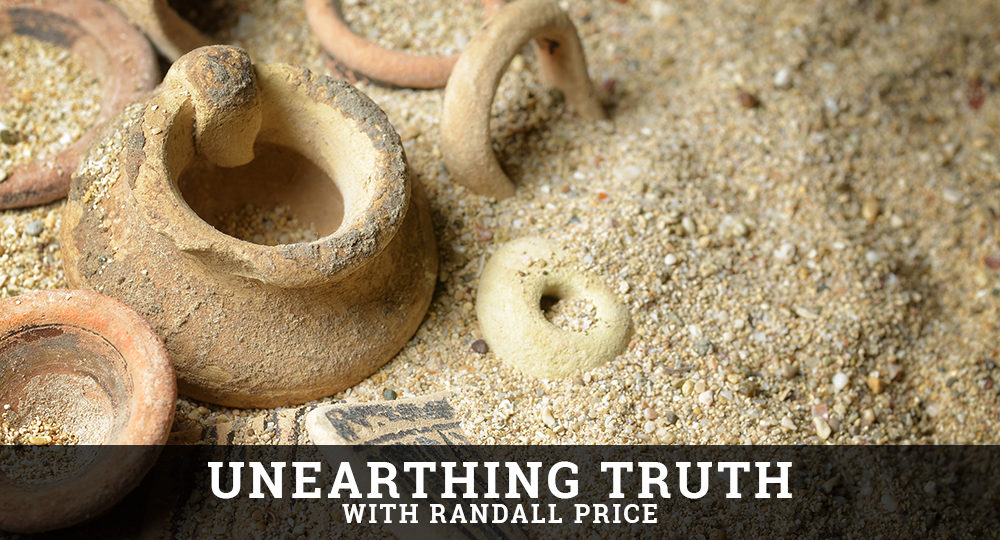What If Abraham Had Never Existed
“Abraham never existed, but his cousin did!” said one of my professors during a graduate course on Israel’s early history at the Hebrew University of Jerusalem. He believed Abraham and all the biblical patriarchs were fictional characters with colorful relatives in Canaan who produced urban legends about their lives.
Recently, a Reform rabbi conducting a Passover seder on national television stated, “The Bible is not history; it is a book of ideas.” Though some might praise his statement as nontraditional thinking, such false ideas attack the foundational argument for Israel’s right to exist.
If the Bible were false and Abraham never existed, what basis would remain for Israel’s legitimacy as the nation of promise? What basis would remain for the Jewish people’s millennia-old claim to the land of Israel? If there had been no Abraham, there would be no Jewish people and no Abrahamic Covenant—the unconditional promise God made to Abraham and his descendants to give them the land of Israel as an eternal possession (Gen. 15:18–21).
Without the Abrahamic Covenant, Israelis must compete for their land on strictly political and humanitarian grounds. Moreover, Gentile believers have no foundation for their faith (Rom. 11:17–18). Thus the historicity of the Jewish patriarchs is important for Bible-believing Christians, as well as Zionists.
Evidence from the archaeological record of the Middle Bronze Age attests to the historicity of the patriarchs in three major ways:
1. Ancient texts from this period contain proper names with theophoric elements (words for “God,” such as ya or el) that match those of the biblical patriarchs, such as Ya’akov (Jacob) and Rahēl (Rachel). Since names tend to be unique to a given period, this evidence helps confirm the historicity of the biblical record.
2. This period saw the development of law codes and social contracts like those the patriarchs followed. Such texts include the Babylonian Code of Hammurabi; Egyptian and Hittite legal texts; and social and religious texts from the Amorite city of Mari, the Assyrian city of Nuzi, and the Syrian kingdom of Ebla.
In the pre-Mosaic biblical narratives, local laws and customs governed the patriarchs’ social behavior. This fact is illustrated in Genesis 49, where Jacob blessed his 12 sons and gave each an equal share of the inheritance—a practice that followed a law code like that of Lipit-Ishtar (2000 BC).
By contrast, Mosaic Law mandated the firstborn son receive a double inheritance (Dt. 21:15–17). A thousand years later, Neo-Babylonian laws decreed fathers give the sons of a first wife a double portion of the inheritance and secondary sons only a single portion. Thus the changing social customs reflected by these laws indicate Abraham observed laws specific to a certain time and place.
3. The migration patterns in the archaeological record match those of the patriarchs as described in the biblical record. The Bible describes the patriarchs’ lifestyle as nomadic, frequently migrating between Canaan and Egypt. The Bani Hasan tomb painting from around 1890 BC provides evidence for such a geographical migration pattern at that time. It shows a parade of 37 Asiatics from southern Canaan, led by their chief, going to trade with the Egyptians—as did Abraham and Sarah (Gen. 12:10), Jacob and his sons (42:5; 43:11; 46:5–7), and Joseph and his family (chaps. 37—50).
Though no archaeological inscriptions connect to a specific patriarch, Israeli archaeologists at Tel Dan in the Golan Heights have uncovered an ancient structure that can be connected to Abraham. Israeli Professor Avraham Biran and his team found the remains of an arched, mud-brick gate of the city of Laish (later called Dan) through which Abraham passed on his way to rescue his nephew Lot (14:14).
Overall, archaeological finds from the Middle Bronze Age—though sparse—demonstrate that the biblical record of the patriarchs is historically accurate. The Bible records details about that period that could have been known and preserved only by those who actually lived and experienced them. Abraham, then, did exist and remains the father of the Jewish people and the source of blessing to all who believe (Gal. 3:9).









If Abraham never existed, then Issac never existed, Jacob also never existed and then there is No Nation of Israel.
Thank you for speaking truth from an educated background. Without Abraham the entire plan of Redemption falls through the floor.